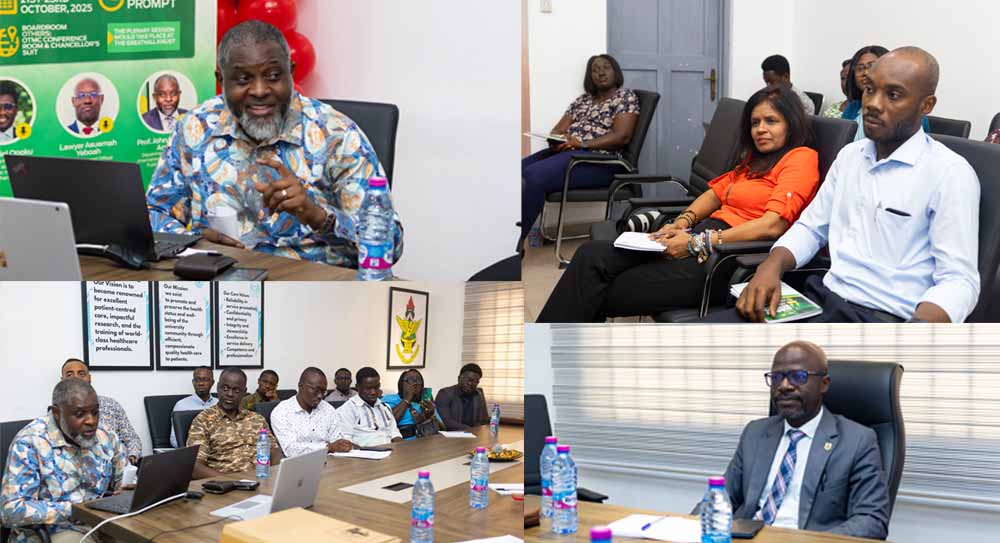Prof. John Humphrey Amuasi, Head of the Department of Global and International Health at the School of Public Health, Kwame Nkrumah University of Science and Technology (KNUST), Kumasi, believes Artificial Intelligence (AI) can predict future health conditions and transform patient-centred care through early intervention and data-driven decision-making.
Speaking at a workshop held as part of the 11th Summer School on the sub-theme “AI in Medicine: Advancing Diagnostics, Research and Patient-Centred Care,” Prof. Amuasi explained that AI can enhance every stage of the health communication cycle, from body sensors and diagnostic devices to healthcare workers, interventions, patient feedback, and population health monitoring.
“Artificial intelligence can help to predict possible future health conditions which can either be on the rise or on the low. By collecting and analysing information from bodies, AI can assess health conditions based on demographics and age groups,” he said.
He emphasised that health professionals remain central to AI’s effective use. “Health workers are in control of artificial intelligence, and this makes them not only the translators but also interpreters,” he added.
Earlier, Dr. Daniel Opoku of the Department of Health Policy, Management and Economics highlighted AI’s growing role in global healthcare and urged Africa to accelerate its adoption. “During COVID-19, physics became a very powerful field and mathematical modelling became useful as we became interested in predicting the next outbreak. It became smarter and faster because of artificial intelligence,” he said.
Dr. Opoku noted that the essence of AI in healthcare is to enhance patient outcomes rather than generate profit. “We want the best for our patients, not necessarily more money, but quality service and improved efficiency,” he said.
Lawyer Asuamah Yeboah also addressed participants on “Medical Malpractice in the AI Era: Refining Standards of Care.” He explained that negligence in medical practice still revolves around four key principles: duty of care, breach, causation, and resultant damage. He stressed that professional bodies remain the ultimate arbiters of clinical standards.
“It is the professional body that regulates the practice, so the protocols will determine whether the clinician has been negligent or not,” he said.
The workshop, held at the University Hospital, aimed to equip healthcare professionals with practical knowledge on integrating AI into medical research, diagnostics, and patient care while upholding ethical and professional standards.

















